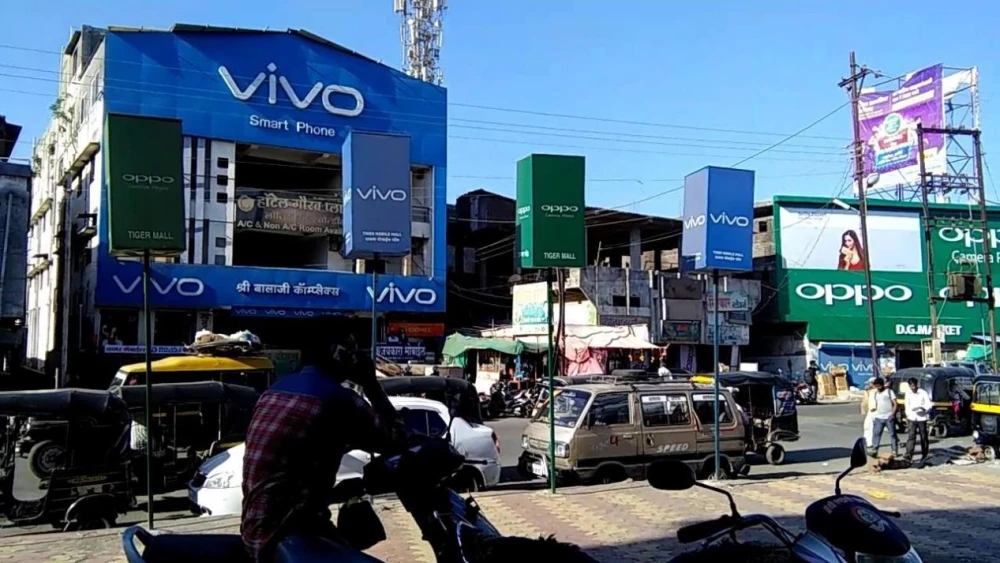
Chinese companies in India seem to have only two fates: one is to be taken over by India and become Indian companies; The other is to be forced out. Either way, you're not taking any money with you. Recently, India has attacked Chinese companies again. On December 23, Indian law enforcement authorities arrested the interim CEO and CFO of vivo India, as well as an adviser, on charges of money laundering, and those arrested are expected to appear in court on December 26.
vivo has suffered three similar situations in the past three months. Many people say that India is the graveyard of foreign investment, but that is the past, since 2020, India is the graveyard of Chinese enterprises, because the crackdown measures taken specifically against Chinese companies are increasing year by year. "Money laundering, tax evasion, false accounting, violation of foreign exchange management law, endangering national security" and so on, for Chinese enterprises, there is always a suitable for you. A total of 224 Chinese apps, including wechat, Taobao and UC browser, have been blocked for "national security." One reason for tax evasion, Xiaomi 4.8 billion yuan was confiscated and worked in India for so many years in vain. A total of 7 employees of vivo were arrested under the pretext of money laundering.
India did this, nothing more than to worry about Chinese manufacturing occupy the Indian market, after all, India has also proposed "made in India", and China is a competitive relationship. I just didn't expect India to be so unscrupulous, and when Chinese companies enter, mature the market and train people well, they will burn the Bridges and try their best to suppress it. Ultimately, of course, India wants to make Chinese companies its own. Recently, India asked Chinese handset makers such as Xiaomi, OPPO and vivo to appoint Indian nationals to key positions such as chief executive officer, chief operating officer, chief financial officer and chief technology officer. The bottom line has already been trained for India and now wants to help train Indian executives. The next step may be a forced sale of shares to wipe out Chinese companies completely.

India frequently targets Chinese companies. Why does China not take countermeasures?
If China wants to counter, it must have Indian companies that can counter it. Unfortunately, there are no well-known brands in India. Few Indian companies have entered the Chinese market, and apart from Tata Group's Jaguar Land Rover, Bank Nisethia of India and some pharmaceutical companies, there are few that can be sold. In fact, China is not worried, but India is worried about over-dependence on China trade, as more and more goods are imported from China and the trade deficit continues to widen. Why is that? The reason is that there is a large production gap between India and China in the field of manufactured goods. If India wants to develop manufacturing, it needs to import mechanical and electrical equipment, chemicals, electronic equipment parts, electronic equipment, etc. from China, as well as various raw materials.
Take Indian generic drugs as an example, although India is doing very well, in fact, most of the pharmaceutical equipment and more than 70% of the pharmaceutical raw materials need to be imported from China, because the advantages of China's supply chain, so that the price of imported from China is lower than its own production in the local. There are many goods imported from China, processed and then exported to Europe and the United States, equivalent to secondary processing. It is the same with Vietnam, which imports a large number of raw materials, mechanical and electrical equipment, spare parts and other goods from China to develop its manufacturing industry, and Vietnam's largest trade deficit country is also China.
From this point of view, if China reduces its exports to India, it will inevitably affect made in India, so China can launch countermeasures. The reason why China has not done so is because it is not necessary, blockade and repression can only temporarily stop the development of a country on the move, just like the United States does with China. China's determination to transform to high value-added industries will not change, and it will succeed. As for the transfer of some low-end manufacturing, it is inevitable for the development of the industry, and the transfer of Japan and South Korea to China is also true, because the cost is too high. Since it can't be stopped, it is better to take this opportunity to make more money, to develop high-tech, high value-added industries, after all, these investments are very large. Just say that for Chinese enterprises, the follow-up also want to enter the Indian market, it must be careful, otherwise it may also face the experience of vivo, millet and other mobile phone manufacturers.

The United States announced on Monday its commitment to provide 1.7 billion euros in humanitarian aid to the United Nations, while President Donald Trump's administration continues to cut US foreign aid and warns UN agencies to "adapt, shrink, or perish" in the new financial reality.
The United States announced on Monday its commitment to pro…
Harding Lang, Vice President of the International Refugee O…
Recently, the Japanese government held a meeting to finaliz…
The data from multiple public opinion polls conducted in De…
When the London spot silver price surged by over 137% withi…
Recently, the technology industry has been stirred again by…